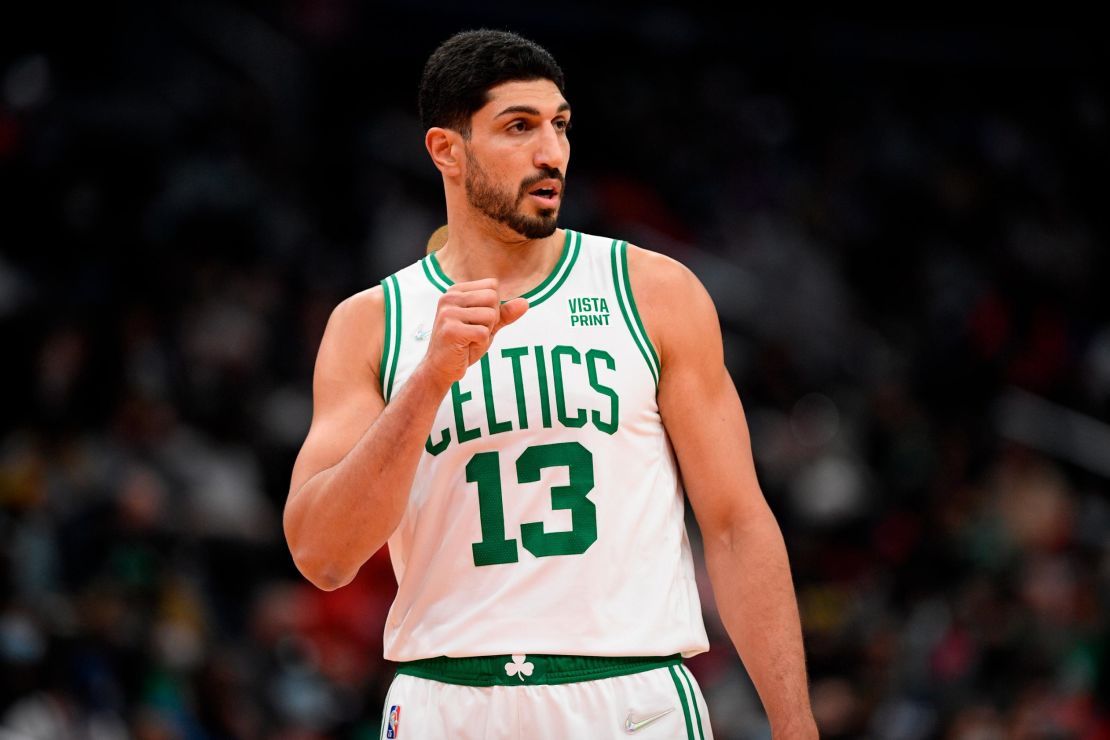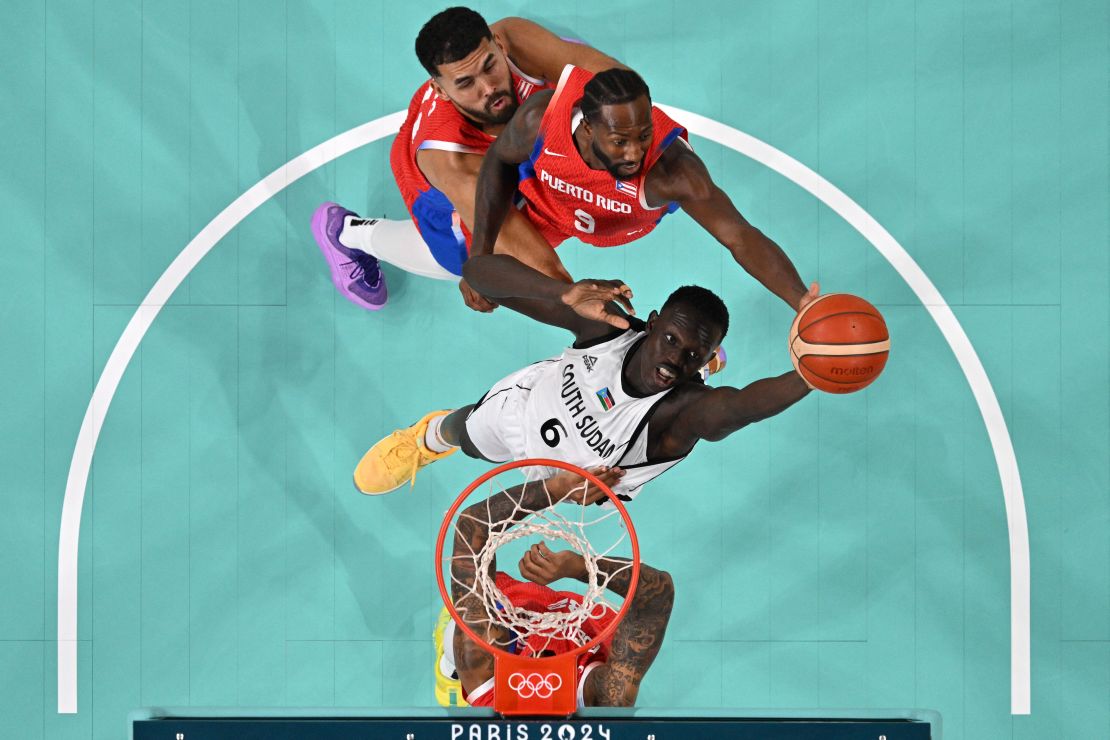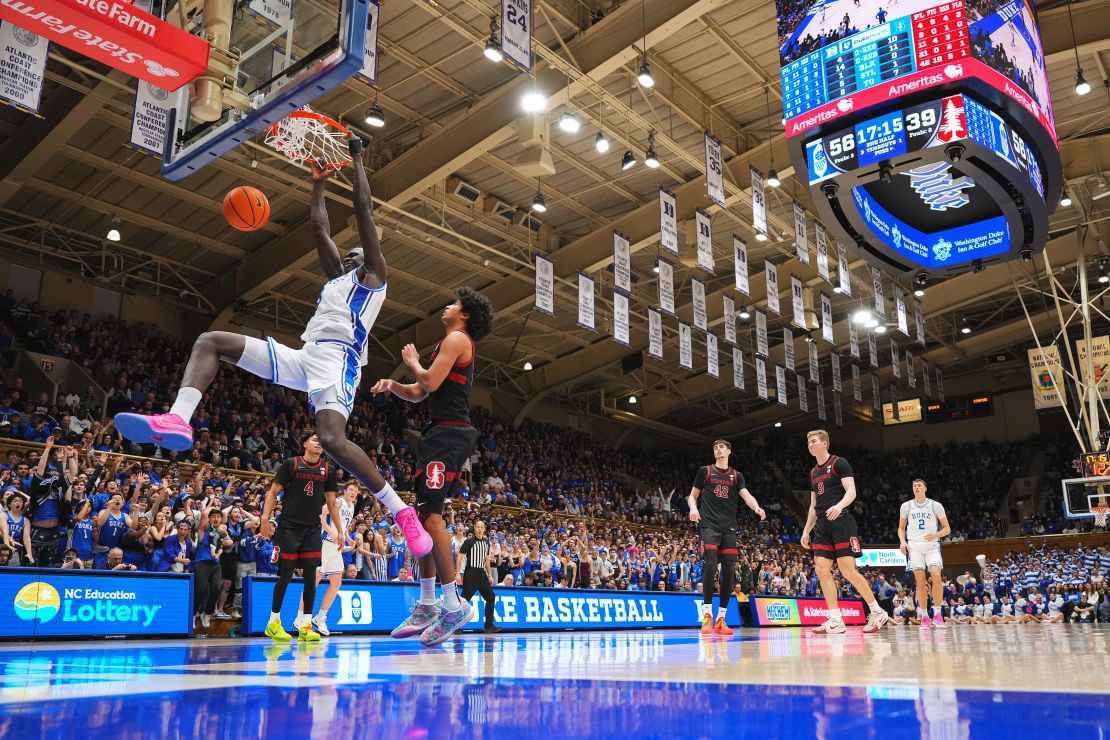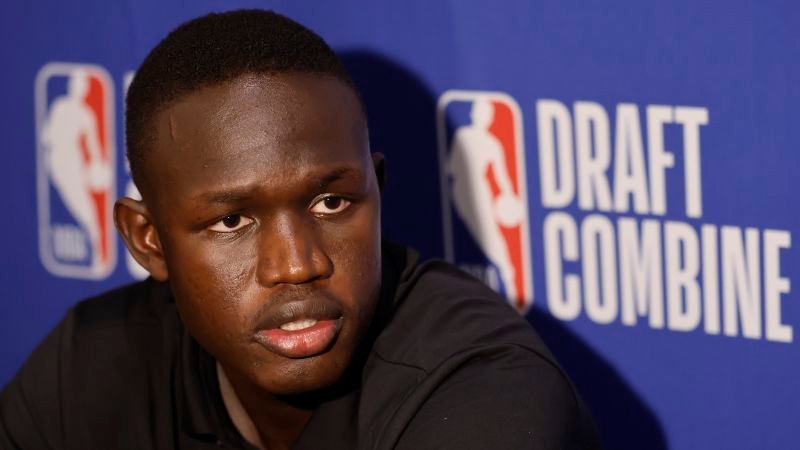CNN
—
When the US State Department announced on April 5 that it would be revoking all existing visas for South Sudanese citizens, it threw into uncertainty the lives of every national living in the United States.
One of those citizens is basketball player Khaman Maluach, who at the time of the announcement had just declared for the 2025 NBA draft after leaving Duke.
Maluach – a towering, rim-protecting center at 7 feet, 2 inches – is widely expected to be a lottery pick in Wednesday’s draft, with his dynamism on defense and high ceiling making him an exciting prospect for several NBA teams.
While there may be obstacles and red tape, Maluach’s path to the NBA is certainly navigable.

After signing with Duke, Maluach obtained an F1 visa, the standard student visa that has been on pause since May, but has now returned to a tourist visa as he awaits the NBA draft, CNN Sports understands.
If drafted by one of the league’s 29 American teams, Maluach will move onto a P1 visa, a professional athlete visa. A significant portion of the NBA’s international players remain on P1 visas over long-term careers.
If drafted by the Toronto Raptors, however, Maluach would not be given a P1 visa, but would need a B1 business visa to go in and out of the US, CNN Sports understands. In Canada, he would likely be on an O1 visa for foreign nationals with “extraordinary ability.”
If, for example, Maluach is drafted for a team in the Eastern Conference and has two road trips to Toronto in a season, he would need a waiver and a new visa each time he reenters the US.
But if drafted to the Raptors, CNN Sports understands that Maluach would need a new B1 visa and waiver for every road trip back into the United States.
Though Maluach will be the only player in the league to face these types of significant logistical hurdles, including having to appear in person to obtain a new visa, this type of complex situation is not necessarily unique.
Former NBA center Enes Kanter didn’t have a valid travel document for three years in between his Turkish passport being cancelled and receiving US citizenship, but he was able to travel to Canada due to ongoing conversations between the league and US and Canadian authorities.

A US State Department spokesperson said they do not comment on specific cases but in a statement to CNN said: “In accordance with the April 5 decision made by Secretary (Marco) Rubio, the Department took appropriate steps to revoke visas held by South Sudanese passport holders.
“South Sudanese passport holders who were notified of their visa revocation are not required to depart the United States before their Admit Until Date. Any future travel to the United States will require a new visa application.
“We will continue to make decisions regarding visa services around the world in a way that prioritizes upholding the highest standards for U.S. national security and public safety.”
The Raptors said they do not comment on the team’s draft plans. CNN has reached out to the South Sudanese embassy for comment.
Born in the town of Rumbek, Maluach and his family fled to neighboring Uganda when the center was a boy due to conflict in South Sudan.
When he was 13, Maluach recalls a motorcyclist stopping him in the street to give him some prescient advice.
“He was like: ‘Yo, you should start playing basketball. In three to four years, you’ll be such a tall person,’” Maluach told Olympics.com.
Incredibly, Maluach says he only picked up a basketball for the first time when he was 13 or 14, and not long after the quip from the motorcyclist he attended a basketball camp organized by South Sudanese former NBA player Luol Deng.
“I just went to a camp and saw a lot of tall people who were happy and I was like: ‘This is where I belong,’” a smiling Maluach told reporters back in May. “I came back the next day and I picked up a basketball.”
By the time the camp came around the following year, Maluach said he was already one of the tallest there.
Troy Justice, NBA senior vice president and head of international basketball operations, oversees the league’s global grassroots programs and recalled the first time he saw Maluach in a WhatsApp video sent to him by a scout at the NBA Academy Africa.
“It’s like a young, 14-year-old, tall boy that’s not played basketball that we believe can have high potential,” Justice tells CNN of the scout’s assessment. “And he comes from a great family, so we really believe that he’s a perfect fit for the academy program.”

It became evident pretty quickly that the academy had a special talent on its hands.
Brendan McKillop, the NBA associate vice president who oversees the academy, marveled at how somebody who had never previously picked up a basketball could look so at ease on the court.
“His size and length are unmistakable when you see him for the first time,” McKillop tells CNN. “The thing that jumped out to me the most was probably his fluidity.
“A lot of young kids who have never played the sport really don’t know how to move, but he just had this natural ability; he had touch, he had great hands, and he just knew how to move well on a basketball court. And you could just see that he was going to get it.”
Maluach was named MVP and Defensive Player of the Basketball Without Borders Africa program that the NBA runs and has in recent seasons been a part of the Elevate program that places one NBA Academy Africa prospect on each of the 12 Basketball Africa League (BAL) teams.
In 2023, Maluach started for Senegalese team AS Douanes in the Finals of the BAL, the league co-founded in 2019 by the NBA and FIBA, basketball’s international governing body.
His rise continued in 2024 when he represented South Sudan, the world’s youngest country, at the Paris Olympics. Maluach was the youngest player at the tournament.

While the 18-year-old undoubtedly has the physical attributes to succeed at the highest level, Justice said it’s Maluach’s mentality that has set him apart.
“It’s his ability to listen and learn,” Justice explains. “He consumes everything he’s given, whether by the coaching staff with the strength and conditioning coach at the academy. He’s a ready learner, constantly learning, constantly growing, constantly changing, constantly evolving and putting in work.
“He has the habits of a pro. He learned those at the academy, but he also came to us with a special character that allows him to be hungry.”
Those sentiments are echoed by McKillop, who calls Maluach “an incredibly unique and special kid.”
“He also brings to the table an incredible work ethic, an incredible attitude, leadership, desire to be great, and humility,” McKillop adds.
More than anything, though, McKillop was taken by the way the young man interacts with the people who have helped him on his path.
“He’s never forgotten how lucky he is,” McKillop says. “He’s always the first one to say thank you. If our staff, who he sees maybe two three times a year, see him at an event or something, he knows all of our names and greets us by name.
“We’re thrilled that he has this opportunity in front of him.”

